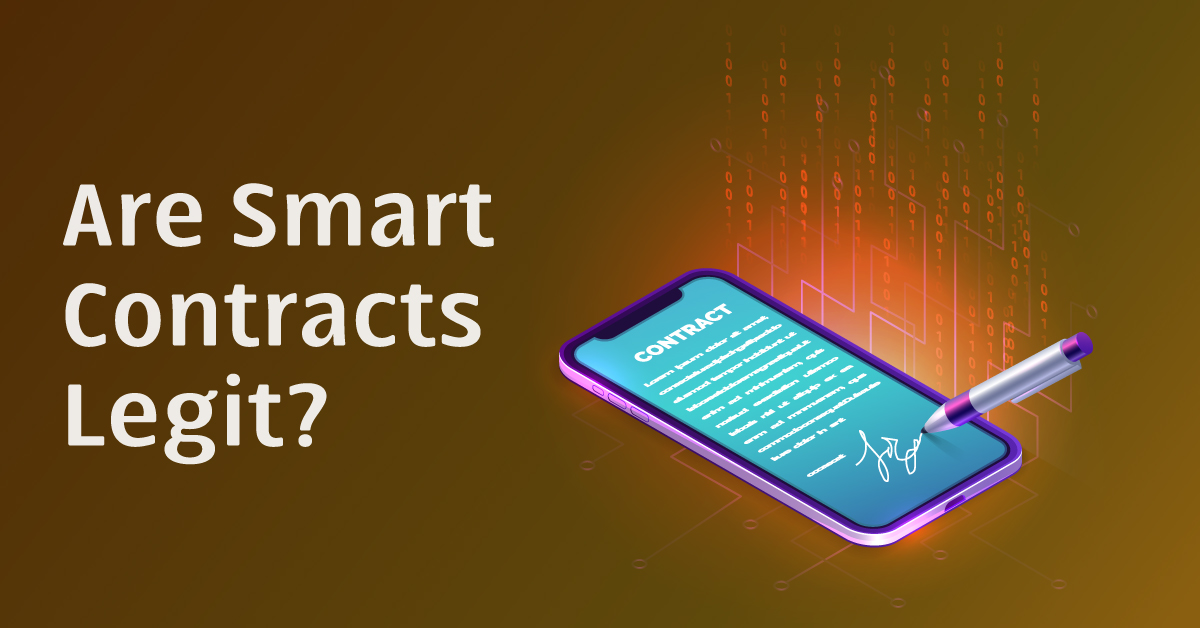The world is gradually moving towards a smarter future, and the legal realm is no exception. Many technological adaptations like AI and cybersecurity are shaping the legal landscape today. Amidst this, smart contracts are an emerging trend that legal experts often discuss. One of the most significant questions around smart contracts is whether it's worth relying on them at all. Let’s examine its pros and cons and discover expert insights from the Law 2.0 Conference.
What Are Smart Contracts?
Smart contracts, by definition, are self-executing contracts in which the terms of the buyer-seller agreement are immediately translated into lines of code. They are stored on a blockchain and automate agreements between the creator and the recipient, rendering them immutable and tamper-proof. In other words, because contracts are digitally coded, smart contracts provide a guaranteed manner of resolving a mutual agreement without the possibility of disloyalty. Experts at upcoming legal conferences are keen on examining its legal possibilities; which calls for a comparison of technical pros and cons.
How Do They Work?
Smart contracts are basically programs that are recorded on a blockchain and run when certain criteria are met. They are used to automate contract execution, eliminating the need for middlemen while boosting efficiency and transparency. In real estate, for example, smart contracts may be used to automate the transfer of property ownership, guaranteeing that the transfer is carried out only when all criteria, such as the payment of the purchase price, are satisfied. Similarly, this process is used in the field of law and is even the go-to trend employed by many practitioners. Many international law conferences discuss its advantages in the sector and compare it with traditional methods.
Pros Of Smart Contracts
Smart contracts were developed to make it easier for two or more parties to execute digital agreements without the need for a third-party mediator. They enable process automation, lowering costs and enhancing efficiency. They also provide a safe and open means of carrying out agreements, ensuring that all parties involved are aware of their responsibilities.
Upcoming law conferences invite industry experts to talk about its advantages and the potential of scams, spam, and fraud in this particular arena. According to them, smart contracts improve productivity by automating contract execution and decreasing the need for human processes, making them more secure, transparent, and cost-effective than traditional techniques.
Are There Drawbacks? Legal Limitations:
On top of their cost, time consumption, and immutability, smart contracts pose technical challenges that may cause their decline in the legal field. Though smart contracts reflect the convergence of technology and law, they are constrained by legal considerations. They do not include any legal language, terms, or agreements; instead, they contain code that executes activities when certain circumstances are satisfied. The absence of legal recognition in many jurisdictions is a significant barrier to adoption. One of the problems that many professionals discuss at international legal conferences is the lack of a legal framework. The legal concerns connected with smart contracts are a substantial barrier to their adoption; attorneys are not required to witness and sign smart contracts, and no formal statute protects their validity.
Are Smart Contracts Worth It? Bottom line:
Smart contracts have the potential to transform the way contracts are executed, but it is critical to evaluate their technological and legal implications and appropriate use to avoid scams and fraud. If one party violates the contract, there is a risk of losing that transaction, and most smart contracts are not governed or controlled by law. However, with the increasing usage of smart contracts, the situation is gradually changing. Smart contracts have the potential to enhance firm efficiency in emerging markets, but their successful implementation depends on their usage.

-01.svg)







